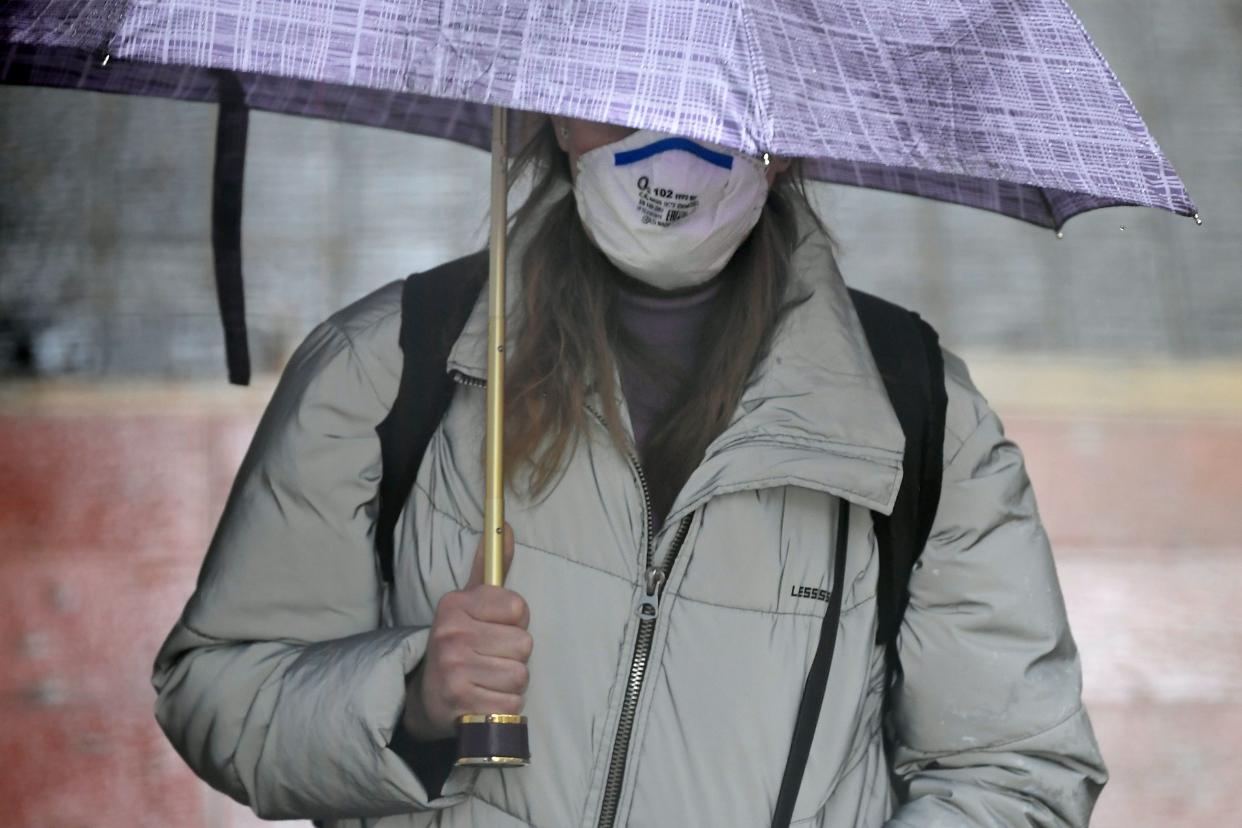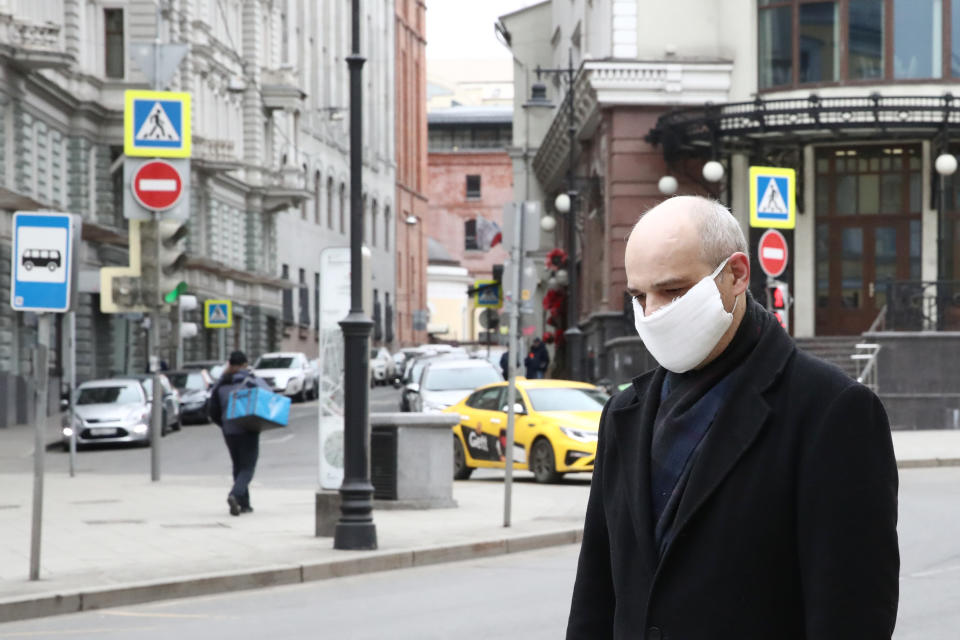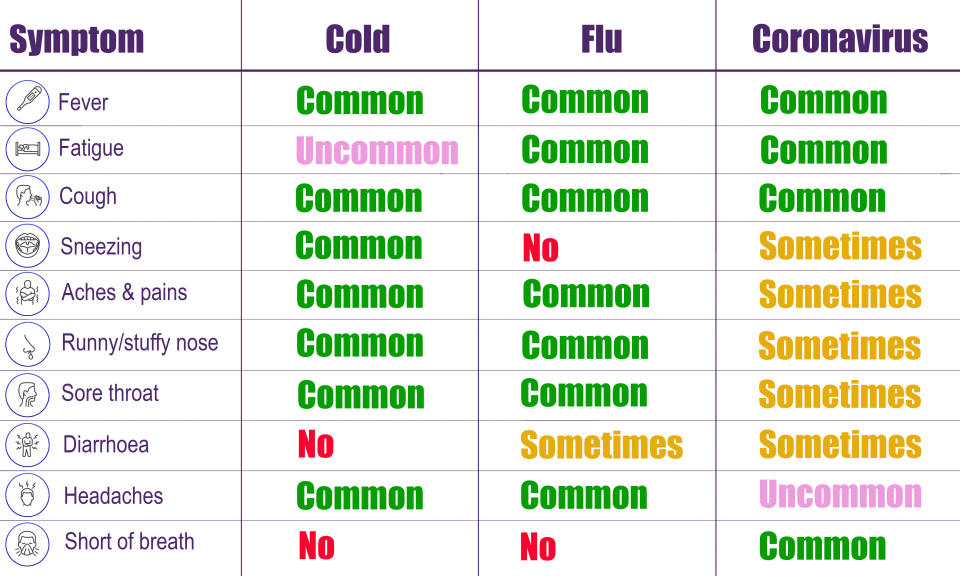Coronavirus: loneliness of isolation may suppress the immune system, experts fear

Experts have voiced concerns the loneliness of isolation may suppress the immune system, leaving some more at risk of the coronavirus.
With the new strain virtually unheard of at the start of the year, relatively little research has been carried out into the pathogen.
When looking at respiratory infections in general, loneliness is one of “three factors that can seriously compromise aspects of the immune system that make people more susceptible if exposed”.
One expert is in “no doubt” the same will apply to the coronavirus.
While maintaining social distancing is crucial to stemming the pandemic, regular calls with loved ones may help you feel less alone.

The coronavirus is thought to have emerged at a seafood and live animal market in the Chinese city Wuhan, capital of Hubei province, at the end of last year.
Since the outbreak was identified, over 741,000 cases have been confirmed across more than 170 countries on every inhabited continent, according to John Hopkins University.
Latest coronavirus news, updates and advice
Live: Follow all the latest updates from the UK and around the world
Fact-checker: The number of COVID-19 cases in your local area
Explained: Symptoms, latest advice and how it compares to the flu
More than 156,800 patients are reported to have “recovered”.
Cases have been plateauing in China since the end of February, with the US and Europe now considered the worst-hit areas.
The UK has had more than 19,800 confirmed cases and 1,228 deaths.
Globally, the death toll has exceeded 35,100.
Loneliness a ‘very accurate concern’ amid the coronavirus pandemic
“In my field, we have conducted a lot of work to look at what predicts who gets colds and different forms of respiratory illnesses, and who is more susceptible to getting sick,” said Dr Christopher Fagundes from Rice University in Houston.
“We've found stress, loneliness and lack of sleep are three factors that can seriously compromise aspects of the immune system that make people more susceptible to viruses if exposed.”
The UK is one of more than 110 countries around the world that have restricted their residents’ movements.
Boris Johnson has introduced draconian enforcements that only allow people to leave their homes for “very limited purposes”, like “shopping for basic necessities as infrequently as possible”.
The prime minister has urged anyone with the coronavirus’ tell-tale fever or cough to isolate entirely for seven days, with other members of their household doing the same for two weeks.
Letters have gone out to 1.5 million vulnerable Britons, like those with severe asthma or blood cancer, telling them to stay indoors for the next three months.
While officials are confident these extreme measures will help stem the outbreak, some experts worry loneliness may leave people more at-risk if they encounter the coronavirus, for example when at the supermarket.
Studies suggest healthy people who spend little time with others are more likely to develop symptoms if they catch a cold than those who are more sociable.
The circulating coronavirus is one of seven strains of a virus class that are known to infect humans.
Four of these strains trigger the common cold.
Research also suggests when people are exposed to cold viruses in a laboratory setting and then placed under “quarantine”, lonelier individuals are more likely to develop an infection.
“[Studies have] not [been] done for [the] coronavirus, but [the results] would likely be the same,” Dr Ruth Hackett from King’s College London told Yahoo UK.
“[It’s a] very accurate concern”.

How does loneliness suppress the immune system?
Positive emotions, unlike loneliness, are thought to strengthen a person’s immune response.
This has been seen among extroverted individuals, who are expected to be exposed to more people who may be infectious.
Loneliness is thought to affect “other aspects of the immune system responsible for the production of pro-inflammatory cytokines [immune-fighting proteins]”.
Over-production of cytokines can “generate sustained upper respiratory infection symptoms”.
With officials urging us to continue looking after our physical health through exercise amid the coronavirus outbreak, clinical psychologist Dr Lisa Orban worries lonely people may lack the motivation.
“Loneliness can also negatively affect one’s outlook on their health and their ability to care for themselves when they do become ill,” she told Yahoo UK.
“For example, someone experiencing loneliness might feel that they have ‘nothing or no one to live for’, which can reduce motivation to care for themselves properly and get through their illness.”
Loneliness aside, a lack of sleep is another serious concern.
“The overwhelming consensus in the field is people who do not consistently get a good night's sleep – seven-to-nine hours for adults, with variation on what is optimal—makes a person more likely to get sick,” said Dr Fagundes.
Long-term stress is also said to suppress immunity.
“Without question, previous work on this topic clearly demonstrates that chronic stress affects our immune system in a way that makes us more susceptible to viruses and colds,” said Dr Fagundes.
“Just think about college students who get sick after weeks of stress while studying for a big exam.
“It's important also to note when we talk about stress, we mean chronic stress taking place over several weeks, not a single stressful incident or a few days of stress.
“An isolated stressful incident does not seem to make a person more susceptible to a cold or the flu.”
While stress can be helpful initially if it helps you meet a work deadline, over time it “throws off” processes in the body, “like wear and tear”, according to Dr Hackett.

Coronavirus: how to combat loneliness
Officials often talk about the importance of social distancing, however, not everyone is a fan of the phrase.
“The active ingredient is physical distance, not social isolation”, said Professor Matthias Mehl from the University of Arizona.
“I am concerned the label on the package can influence how people think about the remedy.
“It is absolutely essential in these times to socially engage and seek out interactions, just not in physical proximity to others”.
Whether you love or loathe social media, living in the age of technology has a number of advantages.
“Social media is the medium of choice right now to interact”, said Professor Mehl.
“We sometimes think of it as society’s curse, but I think it's also, at least in these times, society’s blessing”.
When it comes to keeping in touch, talking “face-to-face” may be preferable.
“There is some evidence that it may be better to video conference versus having a regular phone call to reduce feelings of isolation,” said Dr Fagundes.
“There's something about chatting with people and having them visually 'with' you that seems to be more of a buffer against loneliness.”
While Skype, FaceTime and Zoom may be second nature to you, older people may be more comfortable taking on a landline.
“Elderly people may not have access to online [resources],” said Dr Hackett.
Authorities have hinted the over-seventies may eventually be asked to self-isolate entirely.
“Importantly, stay in contact with them by telephone, Skype etc to avoid them becoming lonely or depressed”, said Professor William Keevil from the University of Southampton.
A 2m (6.5ft) distance is thought to be sufficient to prevent the virus spreading.
“If the person receives regular visits from support workers, ensure they are able to continue attending regularly or if the health visitors become ill then be prepared to bring the food and medicines yourself,” said Professor Keevil.
“These can be left on the doorstep or open the door and have a friendly chat without going in”.
Professor Paul Hunter from the University of East Anglia agreed, adding: “It is essential whilst we ask our elderly and other vulnerable individuals to isolate themselves we do not leave them alone to fend for themselves.
“But [instead] make sure someone is looking after them and do what we can to help them survive the next few months whilst retaining their physical and mental health and their dignity”.
The government has recently released official guidelines on protecting our mental health amid the coronavirus.
Tips include confiding in loved ones, acknowledging troubling emotions and focusing on the present.
With breaking news often alarming, it can be difficult not to worry.
“A good technique is to set aside 15 minutes a day where you allow yourself to worry, preferably with a pen and paper,” said Dr Fagundes.
“After that, you aren't allowed to think about the issue for the rest of the day.”

What is the coronavirus?
The coronavirus mainly spreads face-to-face via infected droplets coughed or sneezed out by a patient.
There is also evidence it can be transmitted in faeces and urine and survive on surfaces.
Symptoms tend to be flu-like, including fever, cough and slight breathlessness.
Early research suggests four out of five cases are mild.
In severe incidences, pneumonia may come about if the infection spreads to the air sacs in the lungs, causing them to become inflamed and filled with fluid or pus.
The lungs then struggle to draw in air, resulting in reduced oxygen in the bloodstream and a build-up of carbon dioxide.
The coronavirus has no “set” treatment, with most patients naturally fighting off the infection.
Those requiring hospitalisation are offered “supportive care”, like ventilation, while their immune system gets to work.
As well as social distancing, officials urge people ward off the infection by washing their hands regularly.



